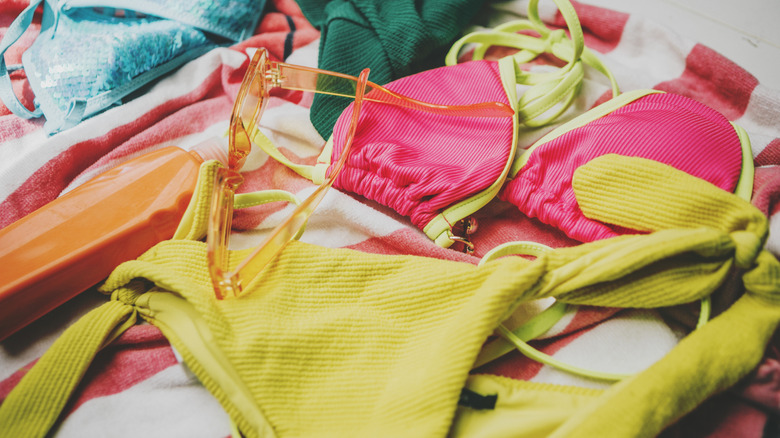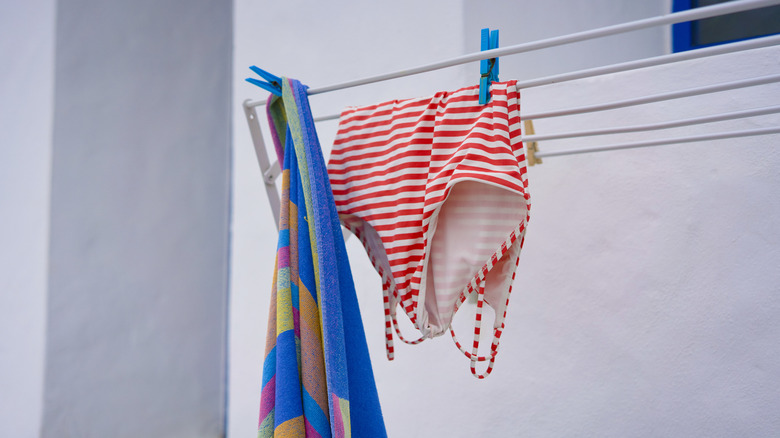The Common Product To Keep Away From The Laundry When You're Washing Swimwear
Properly washing laundry is a skill that can take years to master. If you're one of the people in charge of keeping your clothing and linens clean, you know that different items require special care on wash day. With summertime, a new type of laundry has to be contended with: swimwear. While you may already know that swimwear is something that should never be washed in the washing machine, there's one more vital rule — never use fabric softener when washing your swimsuits.
While fabric softener is a common addition to laundry loads, the reality is that it is no friend of your favorite swimsuit. This is because fabric softener works by coating laundry in a substance composed of special chemicals that cuts down on static and conditions the material to make it feel softer. Though this might be a win for stiff and scratchy towels, it's not a good idea for swimwear. Since swimsuits are designed to be constantly exposed to water, they also are made to dry faster than normal articles of clothing. When the materials that swimsuits are made from (such as nylon, polyester, and elastane) are exposed to fabric softener, the naturally accelerated drying time of the piece will be hindered. By slowing down the time required to dry out your swimwear, you run the risk of moisture lingering in the fibers of your suit for too long, leading to gross odors. In the worst of cases, bacteria and mildew may capitalize on the opportunity and begin to grow.
How to ditch the fabric softener and properly care for your swimwear
Although fabric softener can be very helpful for items that take a long time to dry out, this popular laundry product is not worth buying for fast-drying swimwear. While a swimsuit might not seem like a challenging piece of clothing to launder, there are indeed objectively right and wrong ways to care for these specialty items. After a swim, it's best to immediately hand wash your swimsuit using a gentle detergent. While swishing motions are fine, avoid wringing your suit as the aggressive motion can permanently stretch out the elastic. Always use lukewarm or cold water when washing the suit and carefully rinse out all of the remaining detergent.
As for drying your swimsuit, this should be done by placing it flat on an absorbent towel and letting it air dry at its own pace. Avoid placing the wet suit in the sun or heat, as these environmental factors can damage the material and wear the item out faster. Once your suit is dry, you should store it in a well-ventilated space to prevent any accumulation of moisture.
Should you not have time to hand wash your suit, you can use the delicate cycle on your washing machine without fearing damage. Once the cycle has finished, however, don't let the wet suit sit in the machine — instead, pull it out as quickly as possible to allow it to properly dry. In the end, remembering to follow the right way to wash your swimsuit, will help it last for years (and it won't involve the use of fabric softener).

